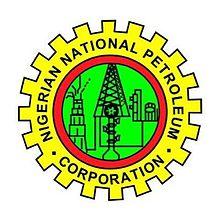
This would have been a commendable initiative by the National Assembly but for the thin line between genuine patriotic intent and outright self-serving machinations of our lawmakers as being displayed every day
Provoked by statements credited to the Minister of State for Petroleum, Dr. Ibe Kachikwu, on December 17, 2017, while briefing journalists after the Federal Executive Council (FEC) meeting that the Nigerian National Petroleum Corporation (NNPC) had lost about $21 billion (about N7.6 trillion) to foreign oil companies operating in the country due to non-implementation of the tenets of the Production Sharing Contracts (PSCs), the House of Representatives last week set out to investigate the matter. This would have been a commendable initiative by the National Assembly but for the thin line between genuine patriotic intent and outright self-serving machinations of our lawmakers as being displayed every day.
Agreed that Nigeria’s oil industry has always struggled with the challenge of devising appropriate legal regimes and fiscal policies to maintain balance between meeting national objectives and at the same time responding to developing trends in the global oil industry, it is vexing that the dubiousness in the existing Production Sharing Contracts which have resulted in the massive depletion of both our nation’s crude oil resources and the revenue accruing from them have been allowed to go on for far too long.
How do you explain that almost all the existing Joint Venture Agreements (JVAs) and Production Sharing Contracts (PSCs) in use today, were signed in the ’80s and ’90s respectively when crude oil was trading at around $10 a barrel and exploration technology in shallow waters and deep offshore fields were still expensive?
Does it mean our people in NNPC and Ministry of Petroleum Resources did not know that the existing JVs and PSCs actually provides for review of fiscal terms to favour Nigeria if oil price rises above $20 per barrel? Now, oil has been selling higher than $40 per barrel since 2007 reaching an unprecedented all time high of $140 per barrel sometimes in 2013 and all we achieved as a nation was to make huge money for the foreign operators. If we have honest and genuinely patriotic administrators at the NNPC, were they not supposed to be the first bunch to carry placards over unfair business agreements with the IOCs especially in the lucrative deep offshore arena?
Doubtless, not activating the review clause to the benefit of Nigeria is more than ignorance and incompetence on the part of NNPC managers and the folks at the Petroleum Ministry but very much an act of criminal omission by all the Group Managing Directors of the NNPC and petroleum ministers within this period 2000- date. Our oil managers practically begged multinational oil companies with mouth -watering fiscal incentives in the ’90s to venture into high risk deep offshore at their own cost. This led to the discoveries of giant oil fields like Agbami, Erha and Bonga now fetching great rewards for the foreign oil companies while the country merely watches as a spectator simply because of dubious policies in the sector.
There is a clear case of sabotage of our national interest here and the National Assembly should not just scratch the surface but go deep down to quiz even all the living former group managing directors of the NNPC to ascertain their complicity or otherwise in the signing of these dubious agreements.
How can we leave our offshore assets (deep and ultra deep) so vulnerable to the foreign multinational operators? Is it not surprising that almost all the major producers in Nigeria have ran into the deep and ultra deep arena? Severally it has been said that nobody in the entire NNPC system nor DPR can say for certain how much crude oil is pumped on daily basis from oil fields in our deep and ultra deep offshore arena. These foreign operators just do what they like in those areas and bring documents for NNPC/NAPIMS and DPR to sign.
The seriousness or rather tragedy of the situation this country has found itself in these contract arrangements is that due to massive pipeline vandalisation and crude oil theft onshore Niger Delta where JVAs are operational, Nigeria now pumps and sells more crude from offshore fields where PSCs are the norm. Here, NNPC take of the share of crude oil produced is far diminished and oil income to Nigeria greatly reduced despite the fact that we still produce our export quota of 2.2 million barrels a day year round irrespective of the oil production shut-in within the Niger Delta.
Whether anyone believes this or not, Ibe Kachikwu was literally removed as the NNPC GMD the day he vowed in 2015 that the nation’s apex oil concern will undertake a review of all Production Sharing Contracts, Joint Venture Agreements and all other contracts between it and its various partners to reflect current day realities in the global oil and gas industry. He fail to realise that the Nigerian oil sector runs like a mafia cartel.
The National Assembly with the NNPC (if they mean business) must exploit every window of opportunity in the existing JVAs and PSCs to obtain maximum benefits for Nigeria by reviewing the existing arrangements. They must insist on a review of the terms of the PSCs in particular as this has become most expedient if Nigeria is to benefit at all from the massive oil finds in its offshore arena.
Agreed, there is no way Nigeria can ask for repayment of the $21 billion already lost but if we don’t take measure today to redress those grey areas in the existing PSCs, the bleeding will simply continue and the country would remain mere spectator in oil crude sales from its deep and ultra deep very lucrative offshore arena.
Nigeria is the site of two of Africa’s four largest greenfield oil developments on queue for Final Investment Decision in 2018.The Nigerian developments include the Shell operated Bonga South West-Aparo(BSWAP), located in 1,200metres of water in Oil Mining Lease (OML) 118 and the ENI led Zabazaba field, sited in 2,000metre Water Depth in Oil Prospecting Lease (OPL) 245.
BSWAP’s sanction is challenged by licence expiry issues while the Zabababa project, which is clearly ahead of BSWAP, is dogged by legal challenges in European courts on account of alleged improper payments in the process of the purchase of stakes in OPL 245 from Malabu Oil, the licence holder. BSWAP and Zabazaba will each deliver at least 120,000BOPD at peak.
Our leaders particularly managers of the oil industry should pay attention to details before they support any investment decision at least in these two pending projects.
It would be recalled that Production Sharing Contract (PSC) was widely introduced in 1993 to address some of the issues faced by the Joint Operating Agreement (JOA) and also to provide a suitable agreement structure for encouraging foreign investment in offshore acreage. Under these arrangements, the NNPC is the holder of the concession while the IOC is the contractor.
In 1993 the NNPC entered into PSCs with eight IOCs. These new PSCs attracted IOCs due to their mouth-watering fiscal and legal regimes, as the foreign operators were given a higher profit share for the more marginal and high risk projects off shore.
In 2000, eight new deepwater licenses were offered, of which the terms of the PSC were considered to be tougher for IOCs. The reduced risks involved in finding larger deepwater reserves was the main reason for tougher profit oil splits in the 2000 PSC terms.
In 2005, 14 deepwater licenses were offered, of which certain alterations were again made to the PSC model contract.
In all, Nigeria is still grossly short-changed and sits as mere spectator watching the foreign operators smile to their banks in their home countries. We need to begin to do things differently. God bless Nigeria!
IFEANYI IZEZE writes from Abuja: [email protected]
